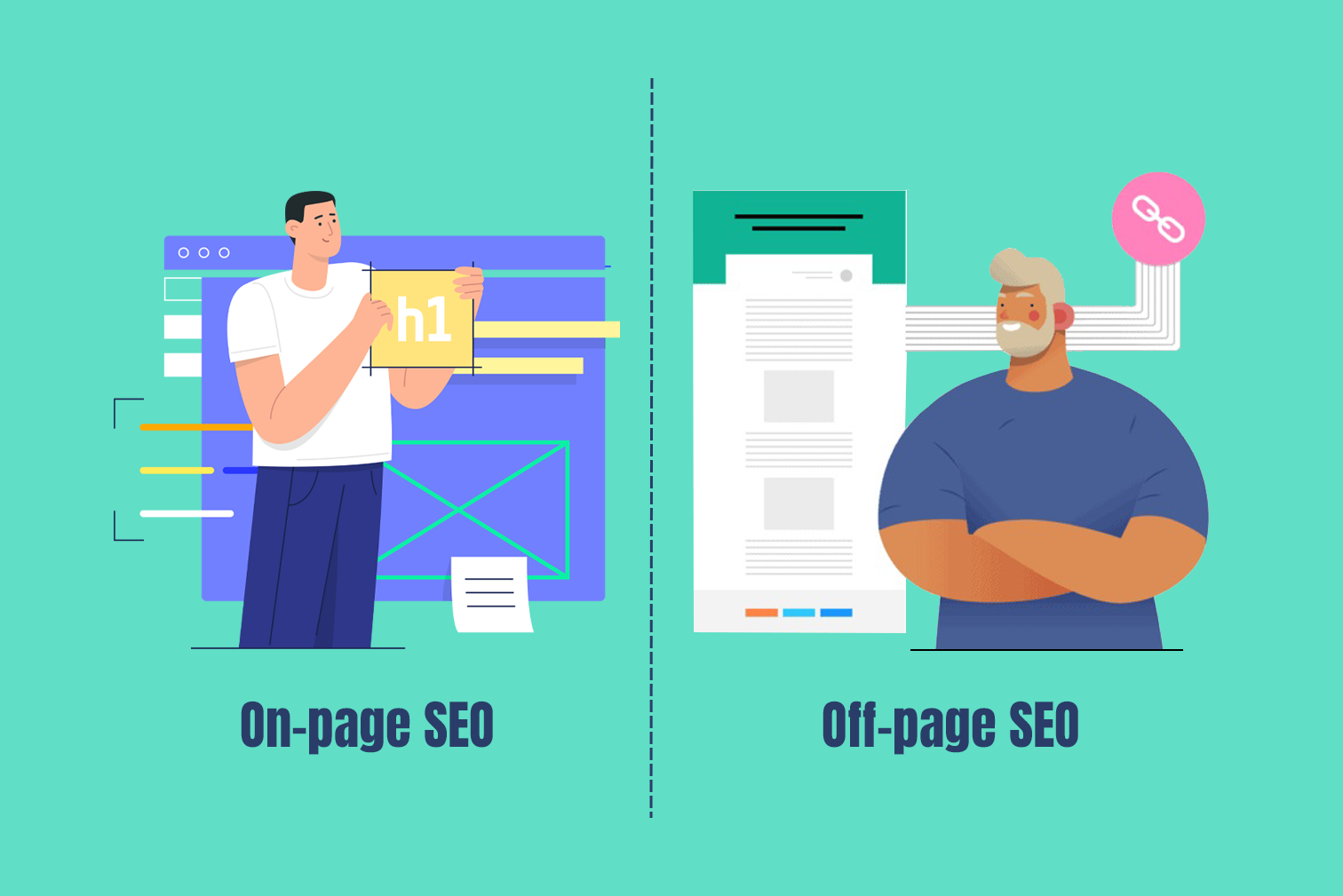Introduction:
You may not realize that there are two categories of SEO strategies. Off-page SEO refers to all methods used outside of a website to increase visibility, while on-page SEO involves optimizing specific web pages for better search engine rankings. Let's take a deeper look.

What is On-Page SEO?
On-page SEO, as the name suggests, refers to the optimization of a Single web page to rank higher in search engines and generate more relevant traffic. This type of SEO optimizes page content and HTML source code. Simply put, on-page SEO focuses on optimizing your website content to make it easier for search engines to understand, crawl, and index your website.
Examples of on-page SEO include page titles and descriptions, keyword placement and frequency, content optimization, internal linking, and more.
What is Off Page SEO?
Well, let's dive into Off-page SEO. This refers to all SEO tactics that occur outside of your website, and is very important if you want to rank higher in search engine results pages. Off-page SEO is mainly about Building backlinks, increasing your domain authority and using social media to promote your brand.
Example, search engines know that your content is valuable if other high-quality websites link to your site. When you build a strong social media presence, people will naturally share and interact with your content, increasing your popularity.
The difference between on-page and off-page SEO
The main goal of on-page SEO is to improve the content and Structure of your website, while off-page SEO builds Website authority through external factors such as backlinks and social media. Focus on doing it. Both play an important role in search engine rankings, so it's important to balance the two.
On-page SEO allows you to control the structure, content and optimization of your website. It's about creating a positive user experience with relevant keywords and improving your site's internal linking structure.
Off-page SEO focuses on external factors, such as social media and backlinks, to help increase your website's authority in the eyes of search engines.
The importance of balancing on-page and off-page SEO goes beyond search engine rankings. A successful website also depends on a good user experience. Therefore, it is important to focus on both on-page and off-page aspects of SEO. The importance of on-page and off-page SEO
Balancing On Page SEO and Off Page SEO
Balancing on-page and off-page SEO is key to achieving Higher search engine rankings and a positive user experience. Without either, your website will lose potential traffic and audience retention. So, for best results, prioritize both.
Tools to balance on-page and off-page SEO
Using tools like Google Analytics, SEMrush, and Ahrefs can help you measure the success of your on-page and off-page SEO efforts to create a holistic approach. It is important to remember that developing an effective SEO strategy takes time, work and constant monitoring.
Conclusion
In conclusion, a successful SEO strategy must strike a balance between on-page and off-page SEO. Using tools can help achieve this balance, resulting in better brand awareness, search engine rankings, and ultimately increased traffic and conversions. Never neglect your SEO efforts and never underestimate the effectiveness of an overall strategy.
